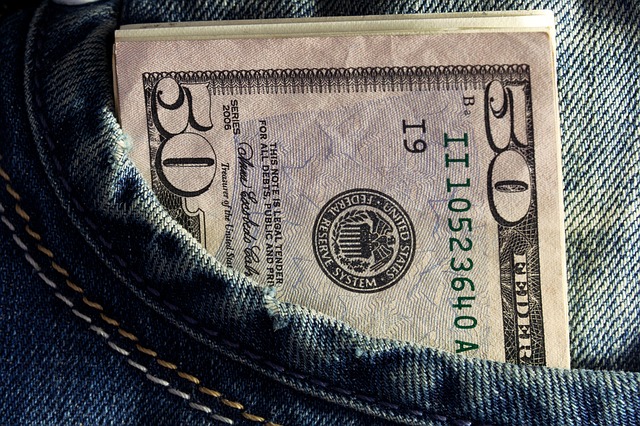There are people decided to enter the business world, but without the necessary experience to commercially exploit certain product or service. For them, acquiring the rights to use a trademark, along with experience and key knowledge, is without doubt an attractive business formula and a very good investment option, but sometimes you can get unpleasantly surprised.
Fairs and franchising exhibitions are becoming increasingly frequent, and they are already part of the usual agenda of each year. As you know, this fairs are attended by the owners and representatives with a clear desire to sell, and therefore strive to project an image of reliability and solidity.
Trying to show the best image possible has always been important in all areas in which human beings are involved, but here is at stake both your money and your financial future; therefore, when evaluating a franchise, the first thing to avoid is to get yourself caught by the attractiveness of a franchise stand, the utilities and items offered, or multicolored well-designed commercial brochures.
Since not all franchises are equal and to avoid exposing your money and taking unnecessary risks, you should look to invest in a franchise for which you can assess how attractive it is and how much its strength is. One of the first signs that you receive from a reliable franchise, is that when you show interest in it, their representatives strive to make you understand the history of the franchise along with all its business information, putting financial data at your disposal as well as growth and expansion plans. This would be a good way to get the confidence you need to further evaluate other options. Transparency is the fundamental base of business; so you must demand it in matters that really are of your interest. In the opposite case, unreliable franchises do not try to convince you about the attractiveness of the business, instead they are trying to make an immediate sell, offering “great advantages” if you sign the contract right away.
Once you overcome that first and very important contact, common sense dictates that if you are interested in a particular brand the second step is to know certain details that will provide you greater certainty and reliability; for example: how strong is the brand you want to market in your geographic market space? What do other people who share the sector of activity in which you want to dabble in think about that brand? It’s also important that you inquire about the innovation policies that have launched the franchise and what benefits you will get from such policies. This question should also be asked about the technical and commercial assistance and in relation to product development.
Of course, it’s not enough to know the appeal of the brand to make the decision, do you already you have information on the loan and the conditions required by your creditor bank? Have you analyzed the performance figures? How long before the business will start giving profits? Can you afford that time? If the franchise gives you part of the financial support you need, in what terms would be agreed such conditions?
Finally, before getting any obligation or contractual commitment, and even if you are convinced of the attractiveness in terms of technical, financial and commercial aspects, it is advisable to seek advice from a lawyer with experience in the world of franchising. The legal advice will not only protect you against possible cases that may arise, but also will advise you on proper financial aspects, including of course the tax and labor issues you cannot ignore. As you can see, there is no way to separate franchises from finances; both go hand in hand, and while it is true that franchises aimed at the fashion industry and fast foods are the most demanded, do not forget to evaluate other options in non-traditional sectors, since the investment will be substantially lower and return rates are quite significant.
When you’re going to invest, the first questions you need to ask yourself is: Is it a worthy investment? Is it advisable to take the risk? One of the most important evaluations to differentiate one investment alternative from another is the combination of risk that you will assume, and the benefits you expect to get (profitability).
Generally, rikier investment should produce higher returns. If it were not so, any investment alternative that report the same potential benefits to another with a lower risk would cease to be attractive.
The risk is linked to the uncertainty of the benefits you actually get by investing. You can earn more than what you expect, less than desired, or you can even lose all the money you invested. There is no way to avoid the risk because profitability will never be assured.
Each alternative for investment is unique because it combines risk with profitability. Since not all alternatives have the same risk or the same return, there are two “laws” that common sense dictates and you should consider when choosing:
- Between two alternatives with EQUAL RISK, you must choose the MOST PROFITABLE ONE.
- Between two alternatives with equal PROFITABILITY, you must choose the one with the LOWEST RISK.
As you can see, you cannot separate the risk that you will assume from the profitability you expect to get, and although an investment with greater risk should produce higher returns, be careful when deciding because there is no guarantee that that will happen. To accept a higher risk does not always lead to greater profitability.
Even though it seems strange, a good salary doesn’t guarantee financial success; also having a low salary does not mean failure. Financial success depends on how you manage your personal finances to improve your quality of life and achieve your goals, regardless of how much money you earn or how big is your spending budget.
Managing your personal finances is a process that begins with knowing your current financial situation; the process continues with the establishment and prioritizing of your goals, so that you can then develop certain strategies that will allow you to get going from your current situation to achieving your goals.
As you see, this is a comprehensive planning process. It is your quality of life that you’ll get to improve and for that you can’t just be focused on a particular interest, neglecting or leaving aside others. Proper personal financial planning will allow you to make smart decisions, including the purchase of your first home, emergency fund management, education for your children, or even how to secure your quality of life after retirement.
It’s not the one who earns the most money that lives better. The one who lives better is the one who is able to get the best possible quality of life, and personal financial planning acts like the map that marks the path to achieve your dreams, realise your ideals and reach your goals. Personal financial planning thus becomes an essential piece of your route; it helps you to achieve your dreams, prioritizes your goals, alerts you about the obstacles which you may find along the way, prevents you from making terrible mistakes, prepares you to face contingencies and unforeseen events and, last but not least, offers first class information so you can make the best decisions.
As you may have noticed, your financial success depends less on your income, but rather on the clarity of your goals and the route you have designed to manage your personal finances.
On many occasions you’ve probably felt like money controls your life. Perhaps you wanted to go for the weekend to the countryside or to the beach, but you could not because you had no money; possibly you needed to pay the electricity bill, but you had to leave it for the next month because you just barely had the money needed for groceries; your vehicle broke down, but you could not fix it because you had to deal with other priorities; In addition, your credit card was about to burst and you didn’t even pay the minimum quota in hopes that the bank would not notice that default in payment.
Surely, these miserable experiences made you feel bad; your mood and your self-esteem were markedly reduced, you got locked in your money problems, you lost your friends, and your thoughts just invited you to believe that it was all “because of money.”
Money is not responsible for our mood or our daily practices. Fortunately, we alone are responsible for our life and our future. A healthy way to change our perception of money is trying to answer these questions: How do I feel about money? What are my beliefs and expectations about money? Am I able to control my expenses and my savings? Is money the one that is controlling my life, or is it me who should control the money?
Your beliefs, perceptions and expectations affect your emotions and determine the actions you can take to sort your finances and expand your financial slack. I give you an example: as long as you don’t believe that you can be successful in life, you will think that there is no need to succeed in finances, so neither you will be convinced about the need to raise your income or moderate your expenses and, consequently, you won’t have reason to change your patterns of consumption, savings habits or your ideas on investment.
Another example: if you believe you’ll never have enough money to do what you please and live as you dreamed, you will unconsciously deny the control you have over your future (which nobody else but you has) and therefore you will not have aspirations, you won’t feel the need to take on challenges and design your financial road map; you’ll just feel resigned.
The concepts you have about yourself and money significantly influence your attitude and the actions you undertake to achieve your goals. Remember that the only person who controls what you think and feel is you. If you just repeat the phrase: “I have no money” I assure you that you will not be doing yourself any favors; On the contrary, you are reinforcing your negativity and slowly you will drag yourself down emotionally. Similarly, if your favorite phrase is: “my salary is not enough at all”, you will be reinforcing the idea that you are not responsible for what happens to you, but that the fault of your ills belongs to your salary, the employer who pays your salary, the government, or the bank.
Always keep in mind that your personal or familiar experiences with money have an influence on your beliefs and the expressions you use on a regular basis when you refer to it; also, those beliefs influence your values, your attitude and your spending, savings and investment habits; in other words, they affect how you manage your money.
Financial ignorance or poor money management can also cause you mental exhaustion, stress, low self-esteem, and even a decrease in the affection and the quality of our relationships with family and friends. Stay focused on your projects and improve your relationship with money; remember that this relationship affects you personally but also affects your relationship with other people.
Lastly, learn to control your feelings about money. Get rid of negative thoughts like “I’ll be poor all my life”, “I don’t know how to earn more money” or “I can’t do more than what I’m already doing.” Do not forget that you’re the only person able to control your future.
So now you know, control your feelings so that money does not control you.
If we talk about money is there anything that rich people know that most of us do not? Perhaps in some occasion you’ve wondered what is the key to keep control over money, maximize it, and begin to think and live like rich people do; Well, let’s unravel the mystery; I will begin by telling you that the difference between a rich person and a poor one, is on the manner in which they mix knowledge, attitude and action.
If you’ve always dreamed of having bank accounts of several digits, but you do not make a move because you do not know what to do or you are afraid of where to start, you’ll never make it. To achieve this, heed these 4 tips from people who have managed to overcome the barrier of a million dollars and, most importantly, they remain happy and their wealth growing to be enjoyed by their children and grandchildren.
- Find alternative strategies to protect your money: One of the reasons for the financial success that the rich of today enjoy is that they learned to protect their assets, combining financial products of high returns, while avoiding paying heavy taxes (we are not talking about tax evasion, but tax incentives conformed to the law). Think of life insurance and annuity products.
- Understand the importance of diversifying: Do not put all your eggs in one basket, it is a wise recommendation that we hear from our grandmothers. This popular adage also works for the rich. Wealthy people know the cyclical nature of investments and therefore do not concentrate on a single place to create wealth, but diversify their investments in order to ensure a steady flow of money into their coffers.
- Save money wisely: Financial intelligence is not just about finding new ways to grow money, but also to preserve it by holding off the personal lifestyle. Lack of control in spending is one of the main reasons why some wealthy people, at a given moment of their lives, have ended up losing everything and in absolute poverty (as some athletes and others in the showbiz). Never go into debt just to maintain a lifestyle that is above your means. Do not waste what you have, let alone the money that is not yours.
- Design your action plan and move: Did you ever think of what you want your money to do for you? Getting money is not the ultimate goal of your life; Money is simply a tool to achieve your most important personal goals. Progress towards these goals is more a matter of action than of thought. Do not waste your life imagining a beautiful future with all your personal goals achieved. If you want to be financially free and feel like the protagonist of the future that you dreamed for you and your family, stand up and walk until you get it. Remember that mere desire will not lead you anywhere. Move, find that future, do not wait until tomorrow to start building your own path to wealth.
In short, realize that the most important thing is to invest in your own future. Search precise knowledge, assume the necessary attitude, get going and, even in difficult times, keep on sowing the financial seeds that sooner rather than later will flourish in your life.
We all have a record of our financial life that often goes unnoticed by each of us; and its score will be better or worse depending on the loans we have obtained, our financial performance and the payment history we have built. Based on this information, banks and other financial institutions assess our profile and make decisions on the loans we request to purchase our home or our car; they also take this into account to extend credit limits for consumption.
Obviously we want to have a good credit reputation, and we must avoid some mistakes that will derail this claim.
- Delaying the payment of your bills: This is one of the highest impact factors when assessing your history. Paying late your mortgage, credit cards or car loans (for example) are big mistakes that significantly penalize your personal credit score.
- Skipping payments: Your financial reputation will crumble if you fail to pay off the loans you were granted, credit cards, or even invoices for goods and services (telephone, Internet, electricity, etc.) It goes without saying that it would be catastrophic to your history if you were to file for bankruptcy or suspension of payments, or if you found yourself under a garnishment or foreclosure.
- Overspending with your credit card: Most people believe that if they do not exceed the limit of the credit card or religiously pay the monthly balance (even if it is just the minimum) they already have secured the sky in the financial universe. Is not always that way. Credit risk analysis and policies may vary, but for purposes of your history and reputation, experts say it is best to prevent the card balance from exceeding 30% of your credit limit.
- Not getting into debts: Although it seems like a contradiction, this is one way to damage your credit score. If you have never asked for a loan before how do you tell if you are responsible and trustworthy? It is not the same for a 21 years old person to apply for a loan for the first time than it is for another of 35 or 40 years old. If you’ve avoided during the course of your life to go into debt and have always had an aversion to the banks, then when you apply for a loan you need you will not have great things to show. Remember that the greater the age of your credit score, the better you can prove your financial profile.
- Not using your credit cards: If you are of the people that breaks credit cards just as you receive them, hide them not to use them, or if you just settle for simply using them occasionally to keep them active, then believe me you’re not doing yourself any favor to your financial reputation; that way it will be very difficult for the Bank to increase your credit limit, or worse, chances are you won’t get your card expiration date renewed; therefore, your financial history will not be the brightest, and it may even lose some points.
Avoid ruining your financial history, because it is the only way to show the world that you are trustworthy in money matters. Important: If you have economic problems to make ends meet, do not throw overboard what took you years to build, assume your situation and talk to your creditors; perhaps it may cost you some score points, but eventually you will see your sincerity and responsibility rewarded.
It is no secret that compulsive shopping and the obsession for purchasing the latest models of technological fads are fast tracks to the financial collapse, but there are certain habits that appear to be harmless and can also cause great damage to our personal economy, and even some financial havoc with the passage of time. Three apparently innocent but potentially harmful habits are:
1 – Making many small purchases: Common sense tells us that no one will stop buying coffee or a small sweet candy at mid-afternoon, thinking that that decision could be driving him into bankruptcy; but we probably have not realized the tremendous economic impact of these innocent whims when they are recurrent and become an habit. If you’re not convinced, simply add up all the “little” expenses you did for one month, and you’ll see it. The morning coffee, dessert in the afternoon, the small water bottle, the daily newspaper with sports news, the package of candy, the weekly magazine to find out the love life of celebrities, goodies that you take your home and many other examples like that. The expenses on all these consumptions should invite you to prevent these recurring consumption habits.
2 – Being overly generous: Generosity is a personality trait that moves you to offer and share your wealth with others. It’s okay to be generous, even more with those who really need your understanding and help, but you must be careful because your generosity may be affecting your pocket amazingly. Calculate the total amount of tips you leave in the barber shop, in restaurants, in taxis; sum the donations you regularly give to your church, or the times you’re asked for a contribution for certain charities. Complete calculation with coins you offer to street musicians, or to people who ask for alms. You can continue adding what you spend in sponsoring social projects or protecting certain endangered animal species; include also the money you gave “borrowed” to acquaintances and co-workers when they asked for help to solve a need. All those little expenses (and many others) affect your economy. We do not ask you to stop being generous; we just warn you and invite you to calculate the economic impact of your generosity and benevolence.
3 – Using your credit card for everything: It is true that a credit card avoids the need to go out with a lot of cash (with the benefits that entails), not to mention many other benefits associated with its use; but it is very dangerous to get into the habit of paying all your purchases by credit card, because by doing so you can lose sight of the economic and emotional impact associated with spending, and this will lead you to spending more than you need or buying more than what you should. Keep in mind that many establishments conditions for accepting credit cards is that you have to make purchases for a minimum amount, so you may feel the need to buy even beyond your means. Do not forget that every time you use your credit card, you are acquiring a debt.
If you really want to start making good financial decisions, take care of these three habits and avoid making excuses that could tie you to them; that way you’d be fooling yourself and you would not be acting wisely to protect your net worth nor your family’s.
On many occasions we have heard very encouraging expressions such as:
- Starting tomorrow I will begin to save more.
- I am convinced that I should not spend so much.
- I’ll start saving for retirement.
- I will pay all credit cards debts.
And so many others like them, which represent a good start to bring order to financial matters. People tend to promise things for themselves, but sometimes something comes up that requires that financial goals to be relegated to the background.
Just like there is a large group of people who have good intentions to straighten their economy and set their financial goals, there are others who do not even speak about these issues, much less take the minimum actions to enjoy a better financial situation . These people are not aware of the need to set goals, they believe that the world of finance is not for them or, worse, have mental laziness to think about such issues even if their financial health is critical. These people are genuinely “financially lazy”.
By their way of thinking and their attitude towards money and finance, financially lazy people own certain qualities that prevents them from achieving higher levels of welfare and economic conditions. I invite you to review your financial attitude in search of some of these signs:
- You do not have sense of urgency. If you feel that there is no reason to worry now by financial issues, or your favorite phrase is “someday” (someday we will think of retirement, someday I’ll have more money, someday I’ll be able to start saving, someday I’ll have my own house, someday we will live without debts), perhaps you are financially lazy. Never think that this is not the right time to think about money savings, loans, retirement and investments. Every day you must think in financial terms, because if you do not, your life and your family will be increasingly exposed.
- You think things are fine just as they are now and so they should stay that way. Some financially lazy people do not have a strong desire to improve their financial situation, which makes them to remain happy and static in their comfort zone. Remember that there are always opportunities for improvement; there is always space to enjoy greater welfare, but financially lazy people do not find the incentive to take the first step; They think that what they have is good enough for them and prefer to keep things as they are.
- You feel you do not progress because you are looking for perfection. Many people who want to approach perfection end up paralyzed and being financially lazy. Those people, very demanding and too harsh with themselves, are devoted to go through the same ideas over and over again; they are happy thinking and analyzing, but they fail to act, and when they finally manage to complete a mental puzzle on their financial goals, they may not know how to prioritize, they are out of ideas to take the first step, or are unable to accept mistakes and tolerate failures. Remember that fear paralyzes and the end result of thinking too much is inaction.
A minimal financial education, self-esteem and good attitude in front of uncertainties may prevent you from being financially lazy. Always act with a sense of urgency (starting today); enhance everything you can improve (never get complacent) and do not devote much time seeking perfection, because in the end who is perfect in this world?
One of the big differences between saving and investing is that by investing you are engaging part of your savings in hopes (which is not certainty) of earning some more money, which is fine, but every time you invest you will be accepting a risk , which does not happen with saving.
By investing you risk some of your money to get more money. This is one of the ways you have to make money work for you, even while you sleep, you’re on vacation or having dinner with friends; but investing is very different than playing roulette or any other casino game (where chance intervenes), so you have to do it with intelligence. To invest wisely it is not enough to have luck or intuition; you must also have a reasonable expectation of profitability, which depend on the quantity and quality of the information you have about the investment and the judgment with which you draw conclusions from it, besides the risk you are willing to take.
Even with the uncertainty and the risk involved, smart investments will grant you more control of your money and the financial independence you’ve always wanted, but never forget that by investing you will be using some of your savings and therefore, you are compromising your financial capacity.
Always invest wisely, and never risk money you need to pay immediate or short-term obligations.
Many times we complain about not having enough money to cover our monthly expenses; it seems that we never have enough money, because the greater the amount entered in our bank account, the faster we spend it.
Although the issue of money is a sensitive subject for most of us, it is very likely that we are unaware of what we spend, or do not know for sure what we do with our money (we just realized that we no longer have it ), and those little recurring and regular expenses are the main routes where it escapes from us. Unnecessary purchases, unnecessary expenses, certain habits and certain social compromises, undo our pockets allowing our money to “Drain”, significantly reducing our ability for saving and investing.
If you take out your pen and play around with the numbers, try to calculate what you spend on coffee, bottled water and cigarettes; sum the monthly payments you make when you invite your classmates or workmates; try to calculate all the money you spend making small purchases of what you like or what attracts you, even when you don’t really need them.
It is not about depriving yourself of the things that please you, but to become aware of what you do with your money and the need to preserve some leeway that allows you to handle unforeseen situations.
If you want to prevent your money from leaking, try to get enough discipline to stop eating at fast food restaurants, reduce your consumption of coffee and cigarettes; have fun with outdoor recreational activities such as parks and rides that do not require large outlays of money activities. If you go to the movies, think about what you spend on popcorn and soda (these costs are quite significant). Try to go to work on foot or by public transport, and attempt to reduce the use of your own vehicle to avoid payments for fuel, parking and even an occasional fine which you would be exposed to.
And if you go to groceries stores, do it after eating; that way you can resist the lure of buying what you do not need, or purchasing too much (remember that the more you earn, the more you consume). Of course, avoid buying items for their beautiful packaging, as well as articles and magazines that are on the waiting lines of the cashiers (if they are there, it’s because they are not really needed).
In short, start identifying the small holes from where your money is escaping. You may be surprised when you see that without realizing it you’re losing up to 30% of your salary, and that that amount can be used far more intelligently to reduce some of your debts at your own pace, and make investments that increase the value of your money.












MONEY RACE STUDIOS 2020 - ALL RIGHTS RESERVED - LEGAL NOTICE - PRIVACY POLICY